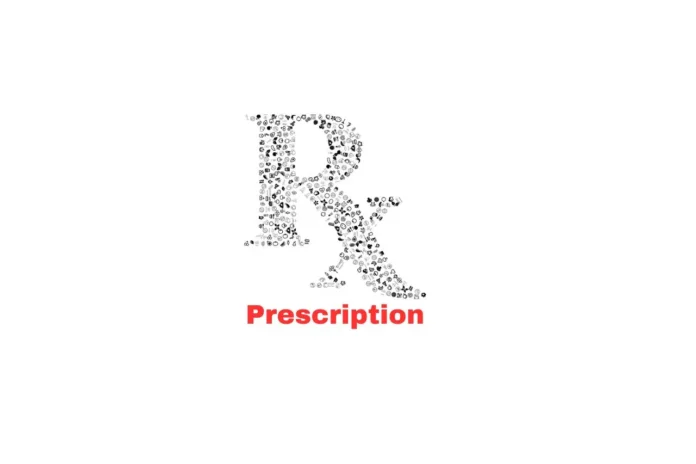Last Updated on October 17, 2024 by The Health Master
The Indian Medical Association (IMA) has recently raised significant concerns regarding the implementation of the National Medical Commission’s (NMC) regulation that mandates doctors to prescribe only generic drugs.
This regulation, while aiming to promote cost-effective healthcare, has ignited a debate on the grounds of patient safety and the quality of medications.
In a statement released on August 15, 2023, the IMA expressed its reservations and called for the deferment of the regulation due to the uncertainty surrounding the quality of generic drugs.
1. The IMA’s Standpoint
The IMA has strongly opposed the NMC’s mandate, citing that less than 0.1% of drugs manufactured in India undergo quality testing.
This statistic forms the crux of their argument against the implementation of the regulation, as it raises concerns about the safety and efficacy of generic drugs.
In response, the IMA has called upon the government and the NMC to intervene immediately.
1.1 The Quality Question
The heart of the matter lies in the quality of generic drugs.
The IMA contends that with such a minuscule portion of drugs undergoing quality testing, the regulation becomes an ill-advised step that may compromise patient care and safety.
1.2 Shifting Responsibility
One of the key assertions made by the IMA is that the regulation shifts the responsibility of prescribing medications from medical practitioners, who possess the expertise and training, to chemists or pharmacists.
This shift, according to the IMA, can jeopardize patient well-being, as chemists may lack an in-depth understanding of a patient’s medical history and condition.
2. Impact on Patients
Patient safety is at the forefront of the IMA’s concerns.
With the implementation of the NMC’s regulation, patients may face potential risks associated with the consumption of generic drugs.
The IMA argues that the focus on cost-effectiveness shouldn’t come at the expense of patient well-being.
2.1 The Prudent Approach
The IMA suggests that if generic drugs are to be promoted, the government should consider a more cautious approach.
Rather than allowing doctors to prescribe both branded and generic drugs, they recommend that licenses be granted exclusively for generic drugs.
This approach, they believe, will ensure a higher level of scrutiny and quality control.
2.2 The Patient-Doctor Relationship
Generic drugs might undermine the trust between doctors and patients.
The bond of trust, built on the doctor’s recommendations and expertise, could be weakened if patients question the quality and efficacy of prescribed generic medications.
3. Balancing Cost and Quality
While the objective of the NMC’s regulation is to reduce healthcare costs, it’s essential to strike a balance between affordability and quality.
The IMA’s contention is that compromising quality for the sake of cost-effectiveness might lead to unfavorable consequences for patients.
3.1 Generic Drugs and Effectiveness
The efficacy of generic drugs compared to their branded counterparts is a point of contention.
The IMA emphasizes that healthcare decisions should prioritize effectiveness, especially when patients’ health is at stake.
3.2 Ensuring Quality
To maintain patient safety and build trust in generic medications, the IMA suggests stringent quality checks.
This involves enhancing the quality control measures for generic drug manufacturing and distribution.
4. The Way Forward
The IMA’s call for deferment invites a more comprehensive evaluation of the regulation’s potential impact on patient care.
Striking a balance between cost-effective healthcare and patient safety remains a challenge.
4.1 Collaborative Approach
The IMA’s concerns highlight the need for collaboration between medical associations, regulatory bodies, and the pharmaceutical industry.
A united effort can address the concerns while maintaining affordability.
4.2 Informed Decision-Making
As the debate continues, patients are encouraged to engage in discussions with their doctors regarding prescribed medications.
Informed decisions can alleviate apprehensions about generic drugs.
FAQs About the IMA’s Stance on Generic Drug Prescription
Q1: What prompted the IMA to seek deferment of the NMC’s regulation?
The IMA’s concern stems from the fact that less than 0.1% of drugs manufactured in India are quality tested, raising doubts about the safety and efficacy of generic drugs.
Q2: How does the IMA view the regulation’s impact on patient care?
The IMA believes that the regulation shifts the responsibility of prescribing medications from doctors to chemists, potentially compromising patient care due to a lack of medical expertise.
Q3: How does the IMA suggest promoting generic drugs more cautiously?
The IMA recommends granting licenses exclusively for generic drugs, ensuring a higher level of scrutiny and quality control in their manufacturing and distribution.
Q4: What is the IMA’s stance on the balance between cost and quality?
While the IMA acknowledges the need for cost-effective healthcare, they stress the importance of maintaining patient safety and effectiveness in treatment.
Q5: How can patients navigate the debate surrounding generic drugs?
Patients are encouraged to engage in open discussions with their doctors, seeking informed advice and making decisions that prioritize their well-being.
NMC’s new Rules ban Doctors from getting gifts from Pharma Companies
NMC-29-12-2022-Draft-National-Medical-Commission-Amendment-Bill-2022
NMC-Advisory-dt-01-06-2022-Usage-of-Khadi-products-in-Medical-Colleges-Institutions-Hospitals
NMC-dt-05-10-2021-Post-Graduate-Medical-Education-Regulations-PGMER-2021
Medical-College-Minimum-Requirements-for-Annual-MBBS-admission-regulations-2020-28-10-2020
Medical-College-Establishment-Regulations-Amendment-2020-28-10-2020
NMC-19-10-2020-Draft-regulations-for-MBBS-course-and-esteblishing-new-Meducal-College
The Indian Medical Council Rules 1957
The Indian Medical Council Act 1956
Inter-Ministry Coordination For Medical Devices Industry: A Critical Examination
USFDA gives approval for Doxycycline Hyclate delayed-release Tablets
Demand for Transparency in Medicine Distribution: RDCA
Opening Of Jan Aushadhi Kendras At Railway Stations: Affordable Medicines For All
Pharma Company asked to stop manufacturing after samples found NSQ: Punjab
NMC mention OTC sale of certain therapeutic categories of Drugs
Equipment and Instruments: Maintenance, difference and importance in the Pharma Industry
Pakistan allows import of Vital Medicines from India
Webinar on Pharmacy Regulations – Insights from MVN University’s Event









